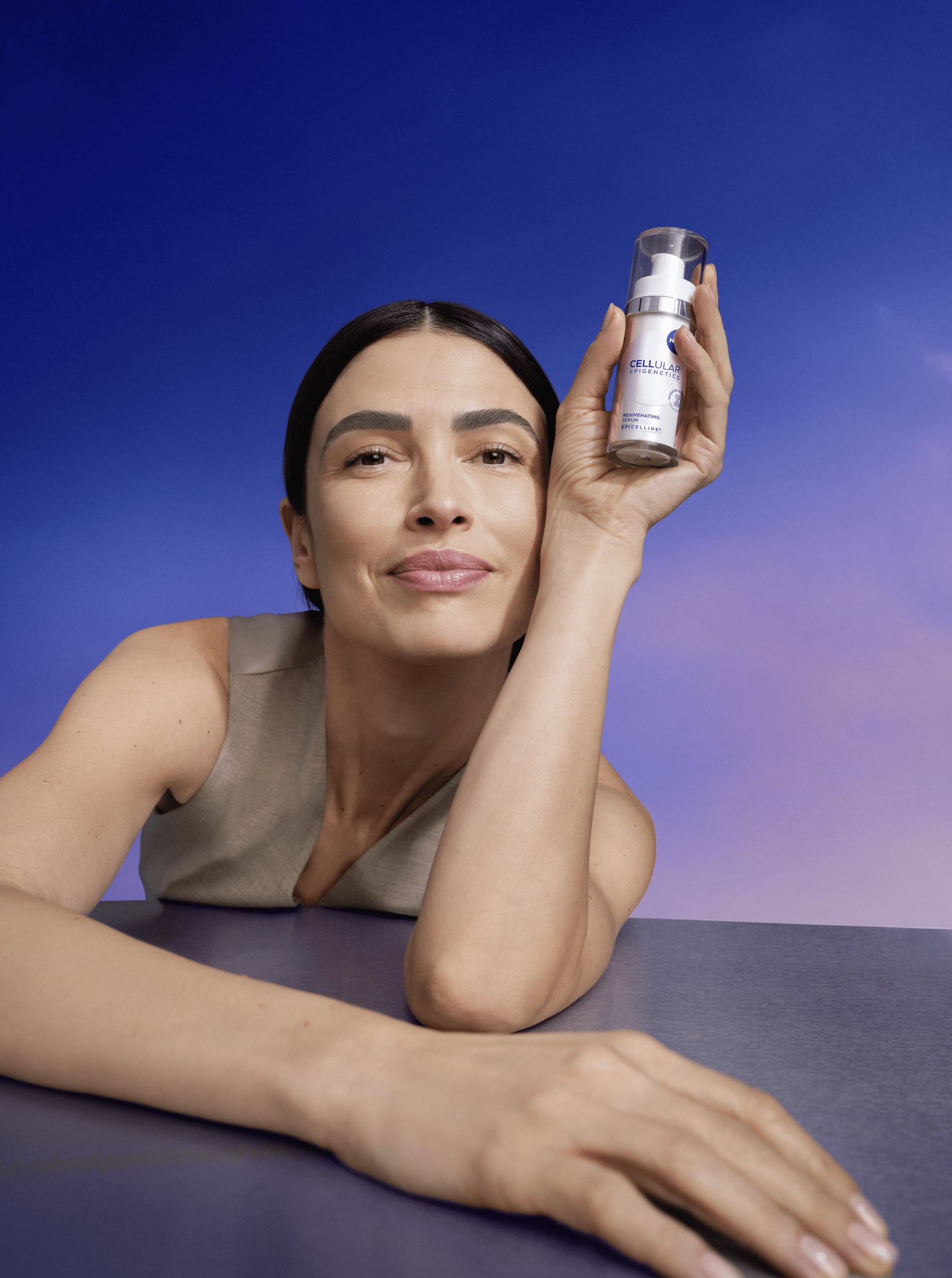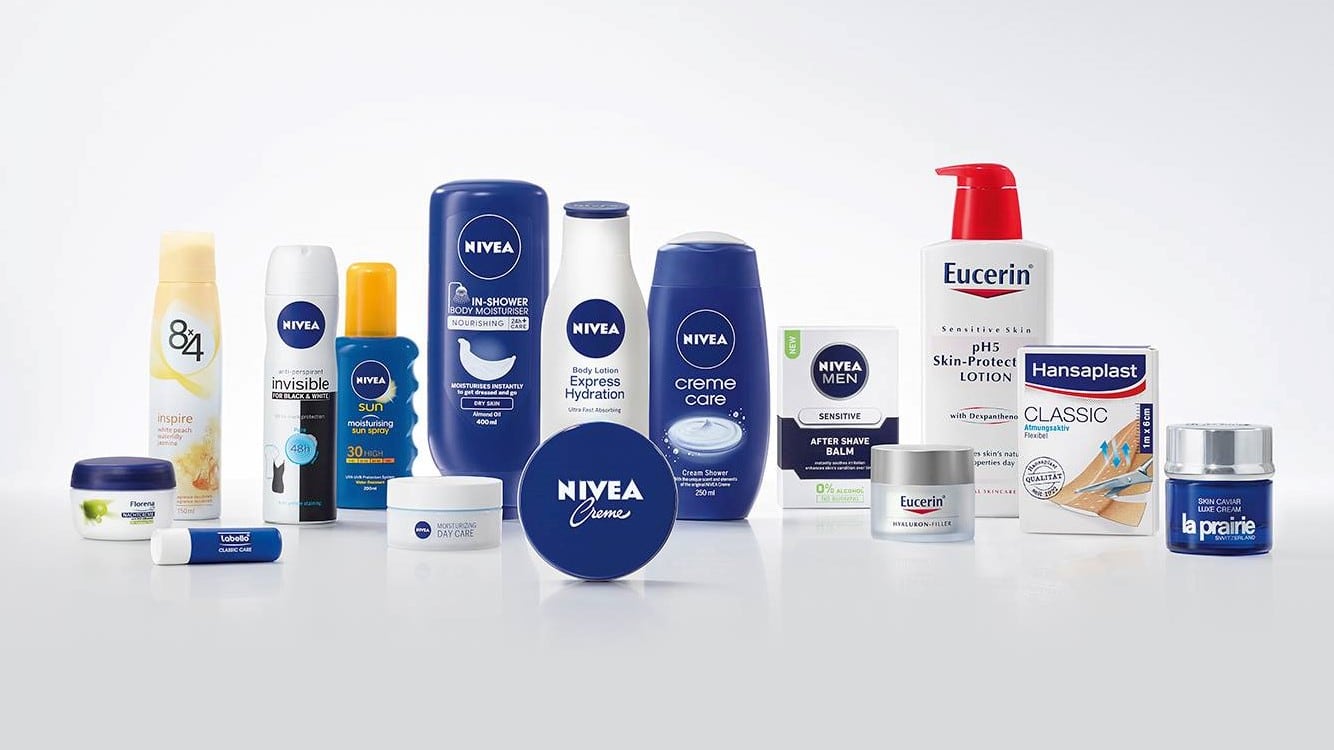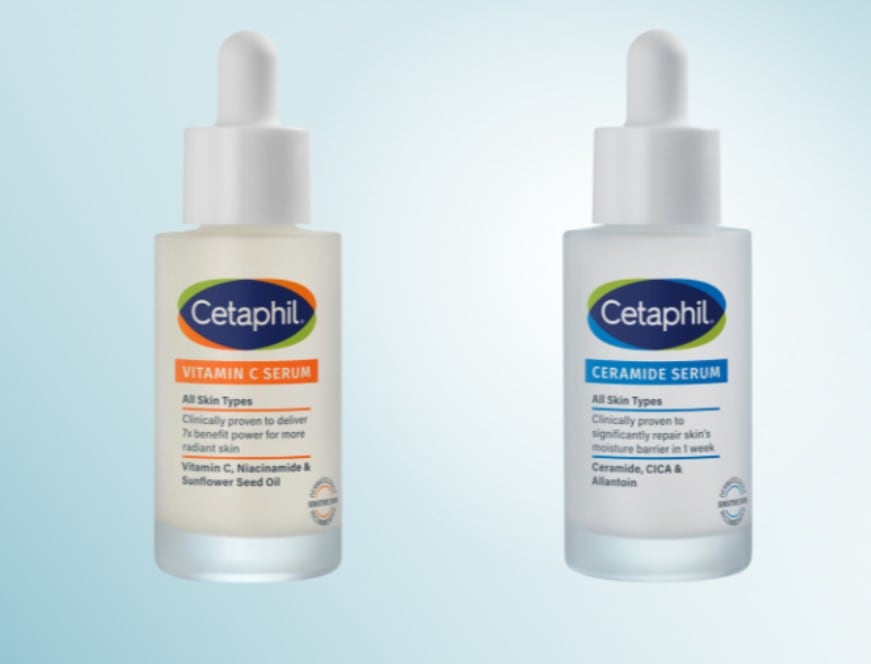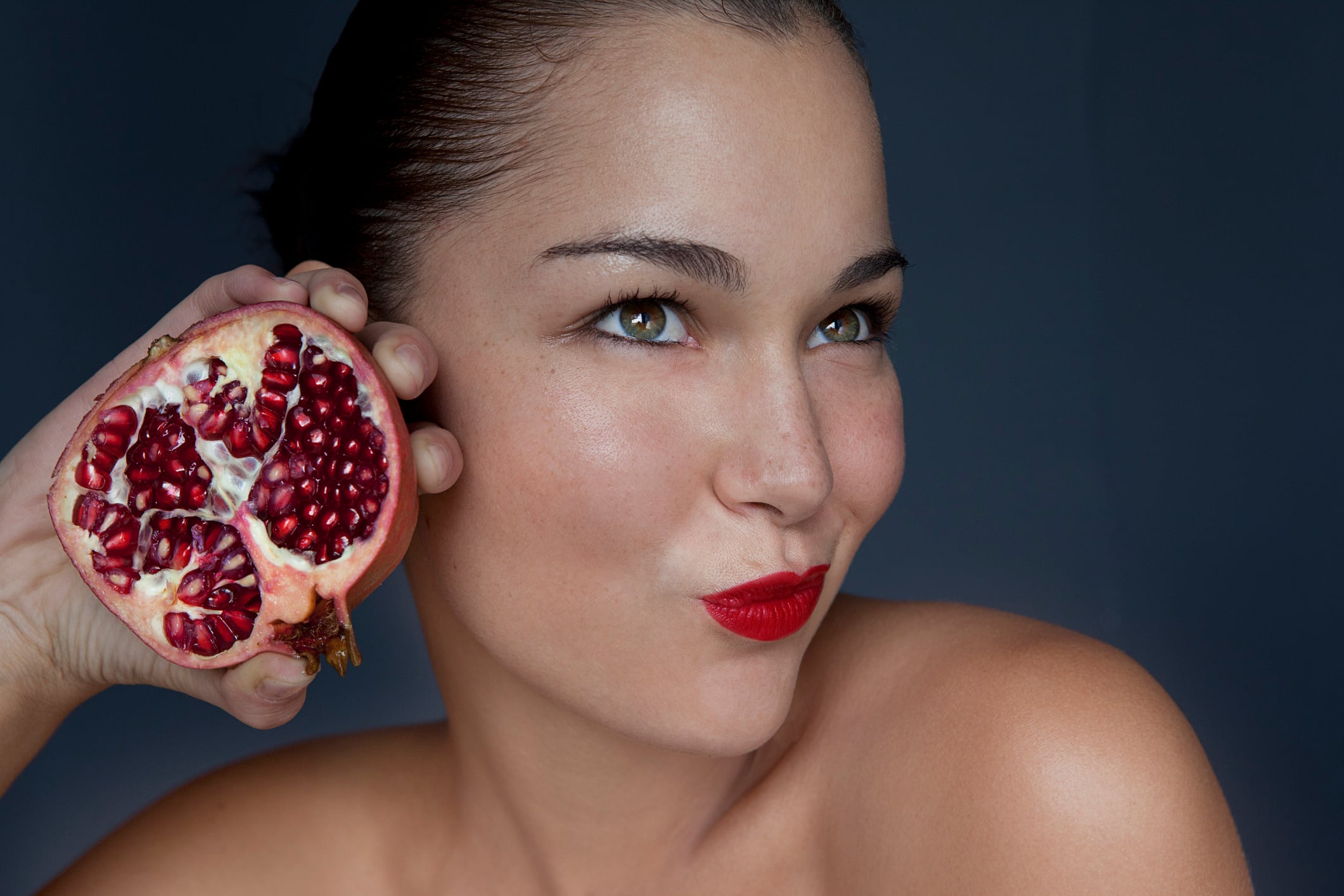Nivea’s parent company Beiersdorf has introduced an “age-reversing” epigenetic serum to the mass market under its flagship brand, Nivea, in a bid to make longevity-focused skin care accessible to more people.
How Beiersdorf is scaling epigenetic innovation for everyday skin care
According to Beiersdorf, Nivea’s latest launch, Cellular Epigenetics Rejuvenating Serum, is the first-ever age-reversing serum available at a mass-market price point.
The formulation features the German multinational’s patented Epicelline® technology, which is based on epigenetic science and is said to “reverse skin age and activate skin longevity”.
Designed to “slow down the skin ageing process at a cellular level”, the serum can reportedly “reverse skin age in two weeks”, according to Beiersdorf.
It combines three types of hyaluronic acid and “delivers a powerful skin rejuvenation formula for those aged 25 and over”.
Leonie Rödig, VP at Nivea Face Care, said the brand’s laser-focus on skin has enabled it “to redefine what’s possible for skin rejuvenation, and most importantly, continue to empower people to feel confident in their skin”.
The new Nivea launch is currently being rolled out across Europe and is expected to be available in 30 countries by the end of 2025, with further launches planned for 2026.
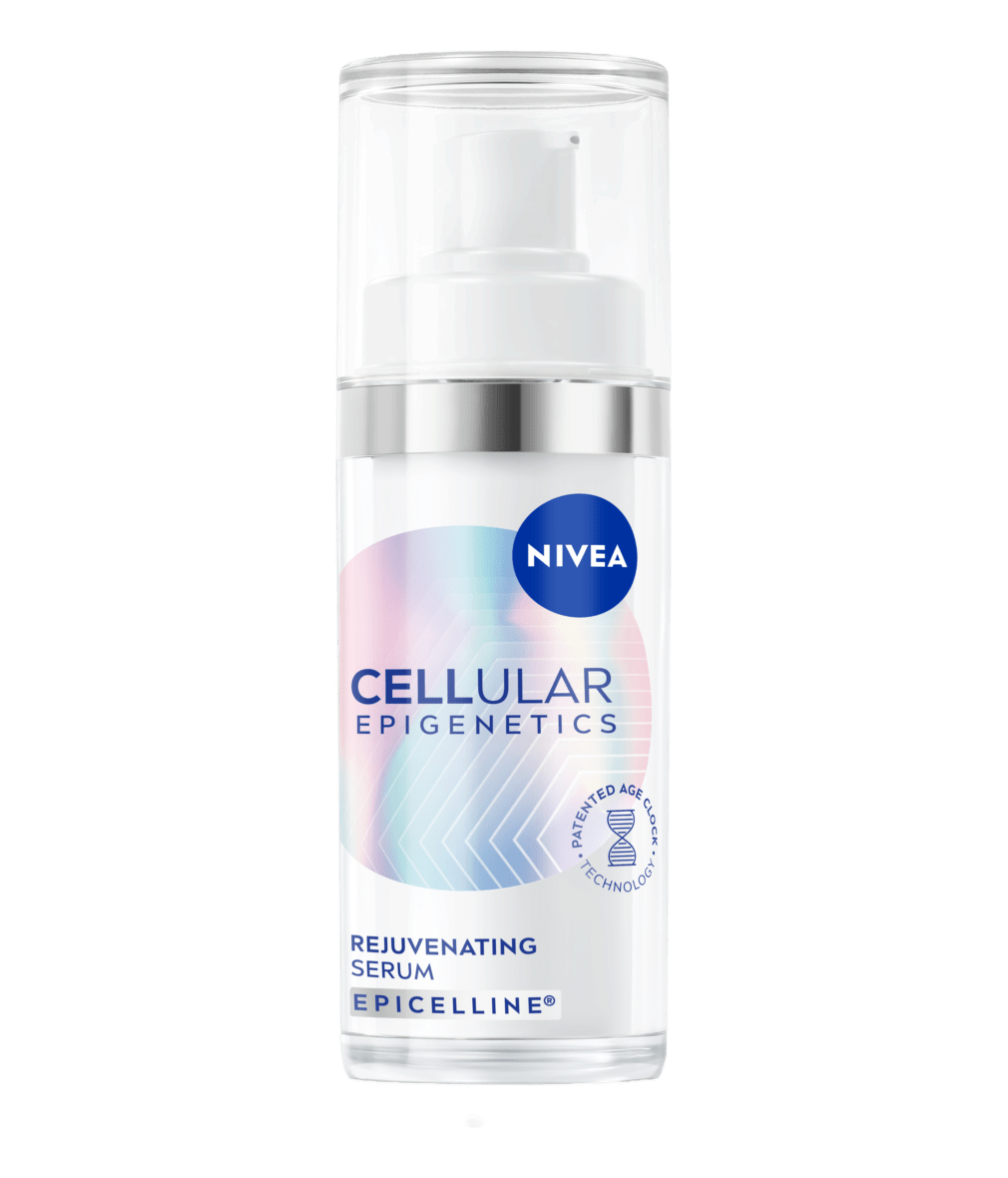
From prestige to mass market: the rise of epigenetic actives in formulation
In 2024, Beiersdorf introduced its “breakthrough” epigenetic technology under its prestige derma-skincare brand, Eucerin. It is now aiming to bring the same innovation to the mass market.
Epigenetics — the study of how lifestyle and environmental factors influence cellular activity — is increasingly being shown to have a direct impact on the appearance and health of the skin.
Beiersdorf’s in-house scientists discovered Epicelline® following 15 years of research.
“Our patented, skin-specific age clock technology helps us identify active ingredients and solutions that make people look younger than they really are,” explained Dr Gitta Neufang, Chief Research and Development Officer at Beiersdorf.
“By leveraging our scientific expertise in the field of epigenetics, our aim is to enhance and restore the youthful functions of aged skin cells.”
The German multinational has a strong track record of discovering science-based active ingredients and bringing them to the mass market. Previous skincare innovations include Q10 and Thiamidol®.
Betting on longevity science for skin care
Following strong growth in recent years, Beiersdorf’s heritage brand Nivea recently experienced disappointing sales results in the first half of 2025.
However, Beiersdorf CEO Vincent Warnery hopes this new launch will help boost performance for the second half of the year and beyond.
Speaking about the company’s cross-brand cascading strategy, Warnery said: “Our goal is to lead the way in longevity science through cutting-edge research based on real consumer insights.”
“As pioneers in epigenetic research, we believe in scientifically proven ingredients,” he continued. “Building on the success of our largest product launch in the history of Beiersdorf Derma Brands — the Eucerin Hyaluron-Filler Epigenetic Serum with Epicelline® — we are now bringing our revolutionary solution for skin rejuvenation and longevity to the mass market with Nivea.”


